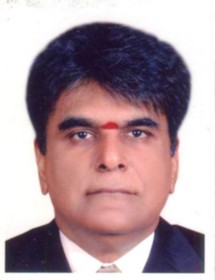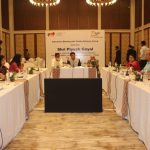Shri Anand Sharma the Union Minister of Commerce, Industry and Textiles held a stakeholders consultations before finalizing the Foreign Trade Policy (FTP), which is scheduled in first week of June. Dr. A Shaketivel Chairman AEPC submitted recommendation on behalf of the apparel industry to be addressed in the Foreign Trade policy. Speaking on the consultation meeting Chairman said, “We support the efforts of diversification of market undertaken in FTP 2009. A separate chapter should be created in the banking. Exporters face a huge problem dealing with the banks. Government should also focus on reduction of transaction cost so as to maximize exports. This is a sensitive sector where 45 million people are employed.”Issues as raised by the Chairman AEPC include:
- 2% MLFPS to USA & EU: The market conditions in EU and USA have not changed. Although in the period Apr 2011 – March 2012, dollar growth has been 17.95%, but the growth is only in value terms and not on the volume terms. The growth is also largely attributed to the exchange rate, which was Rs. 44.99 in the previous year as against Rs. 50.31 this year. The industry was able to remain in these two vital markets due to 2% scrip. Since situation in these two vital markets continues to be grim in the next year as well, the industry seeks extension of 2% Market Linked Focus Product Scheme for the period 2012-13 for Chapter 61 & 62.
- 2% Interest Subvention: The garment export industry is feeling the stress of the high credit rates, which are hovering 5% to 6% over the normal rates. With a view, units to continue uninterrupted manufacturing & to continue to give employment to a large number of workers in the weaker section, there is a need to provide policy support so that the credit at the cheaper rate is available. In this context, it is requested that 2% interest subvention may be given to the entire garment and knitwear sector and should not be limited to the SME sector alone. It is requested that 2% interest subvention may be given in the year 2012-13 so that exporters can tide over to tight monetary situation.
- 2% Focus Market Scheme: The garment export industry took the initiative in diversifying to non-traditional apparel markets. The industry can achieve 10 to 15% additional exports if the benefit of 2% scrip under Para 3.14 of Focus Market Scheme, can be given to garment exports to Russia, South Africa, Brazil, South Korea, Japan and Australia for the year 2012-13.
- 1% Status Holder Incentive: Under Para 3.16.2 of Chapter 3 “Promotional Measures”, 1% Status Holder Incentives for technology up-gradation may be continued and units which are availing loans under Technology Up-gradation Fund (TUF) scheme may also be made eligible. This measure would yield 10 to 15% additional exports.
- Gold Card Scheme: The Gold Card Scheme can be reintroduced. The Gold Card holders may be allowed to buy duty free oil from domestic oil companies for their factory use for self generation of power through generators / Captive Power Plant. The same can be extended and permitted for the Apparel Parks also promoted by the Ministry of Textiles for self generation of power so as to minimize the cost of power required for manufacturing garments.
- Requisition to recommend for restructuring of loans given by Banks: The garment export sector has been undergoing a severe financial crisis for the last three years due to problems emerged in USA, Volatility in foreign currencies, increase in yarn prices, increasing of bank interest rates, transportation cost, increase in wages, and the top most adverse factor is recession in European Union.
- Need to modify export obligation under EPCG Scheme : Under Chapter 5 “EPCG Scheme” export obligation for the 0% EPCG licenses issued on or after 01.01.2008 should be on the basis of 50% of annual average level of exports achieved by the exporter in the preceding three financial year OR Subject to an export obligation equivalent to 12 times (double of existing stipulation) of duty saved, to be fulfilled in 6 years, without maintaining the clause of maintenance of over and above annual average level of exports. Since 2008, the overseas market has been volatile. USA, EU and other markets were highly unpredictable. Investment in capital goods is a long process. 4 years of continued turbulence in market has affected the plans of exporters. This proposed relief may be given to apparel sector.
- Raw Material Security: It has been gathered that Cotton Corporation of India (CCI) has been authorized to buy cotton from farmers to maintain reserve in order to protect farmrs, spinning and garment industry. A regular policy on this be introduced so that buffer stock can be announced and maintained.
The decline in demand from our major markets of US and EU, due to recession have significantly affected the exporting units and in this situation, a maximum number of exporting units are underutilizing their capacity and certain units have even stopped their operations also. We wish to bring to your kind attention that most of the units are taking up and executing the orders, even after knowing that the loss would occur after executing the order, mainly to maintain a long term relationship with the buyers. The major concern is that job-working units are struggling to the core to sustain in the business.
As the crisis has been mounting day by day, we apprehend that the more number of units will be categorized as NPAs and we wish to note that when the units have been undergoing a severe crisis and are unable to repay the loan and interest rate, they should not be categorized as NPAs, since this would create a panic among more number of units in the same league.
Considering the difficulty and factual position, we request your good self to kindly recommend for providing the following measures from the Banks.
- A moratorium for a period of two years in repayment of term loan and interest. Reduction of interest as a special case.
- The losses incurred by the units may be converted into term loan in 5 years.
- Restructuring of the loans without any additional provision to be done by the Banks. Separate chapter in base rate system.
- We request relaxation of NPA norms. The unit which became NPA as on 31.3.2012 should be exempted or waived from this clarification.






